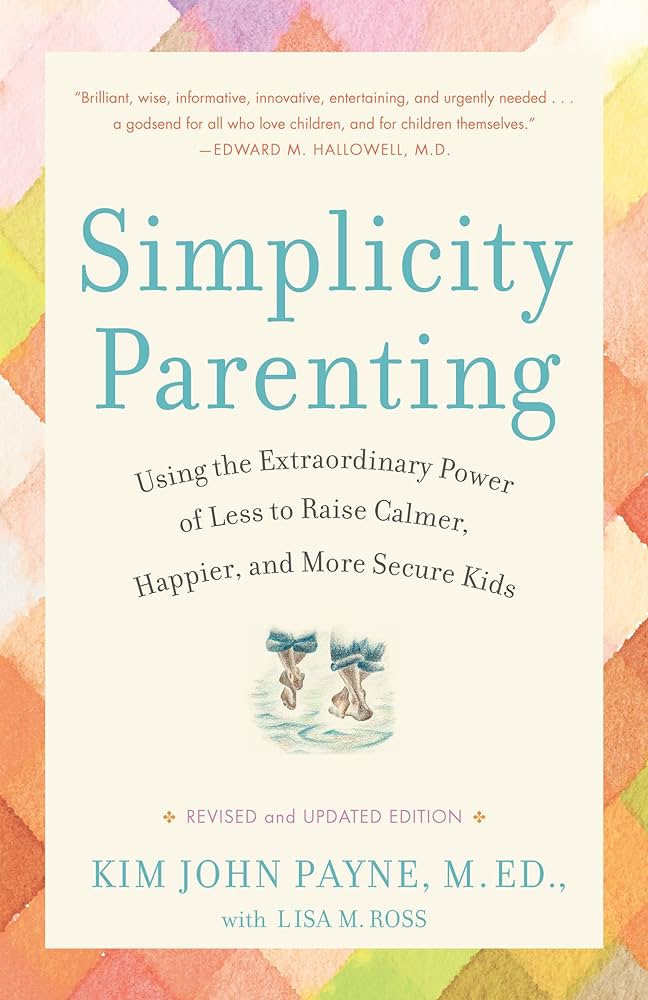
Simplicity Parenting by Kim John Payne
Simplicity Parenting is a groundbreaking book by Kim John Payne that focuses on simplifying family life to create a more harmonious and nurturing environment for children. In this article, we will explore the key concepts and practical strategies outlined in the book, providing a comprehensive guide for parents seeking to implement these principles in their own lives.
Introduction to Simplicity Parenting
Kim John Payne introduces the concept of simplicity parenting as a way to reduce the overwhelming amount of choices and distractions that modern children face. By simplifying their environment, schedule, and expectations, parents can help their children feel more secure and focused.
The Four Pillars of Simplicity
The book is built around four main pillars:
- Environment
- Rhythm
- Schedules
- Filtering Out the Adult World
Environment
One of the key principles of simplicity parenting is to simplify the home environment. This involves decluttering and creating a space that is calm and conducive to play and learning.
Decluttering
Removing excess toys, books, and clothes can help children focus and appreciate what they have. It also reduces stress and promotes creativity.
Practical Tips for Decluttering
| Tip | Description |
|---|---|
| Start Small | Begin with one room or area at a time to avoid feeling overwhelmed. |
| Involve Children | Encourage children to help with the process, teaching them the value of simplicity. |
| Donate or Sell | Pass on items that are no longer needed to those who can use them. |
Rhythm
Establishing a consistent daily rhythm helps children feel secure and know what to expect. This can include regular meal times, bedtimes, and family rituals.
Creating a Daily Rhythm
Consistency is key. A predictable routine provides a sense of stability and security for children.
Sample Daily Schedule
| Time | Activity |
|---|---|
| 7:00 AM | Wake Up and Breakfast |
| 8:00 AM | Outdoor Play |
| 10:00 AM | Snack and Story Time |
| 12:00 PM | Lunch |
| 1:00 PM | Nap or Quiet Time |
| 3:00 PM | Creative Play |
| 5:00 PM | Dinner |
| 6:00 PM | Family Time |
| 7:00 PM | Bedtime Routine |
Schedules
Over-scheduling is a common issue in modern parenting. Kim John Payne advocates for reducing the number of organized activities to allow for more free play and family time.
Benefits of a Simplified Schedule
Children benefit from having downtime to explore their own interests and develop their creativity. A simplified schedule also reduces stress for both parents and children.
Strategies for Simplifying Schedules
- Limit Extracurricular Activities
- Prioritize Family Time
- Encourage Free Play
Filtering Out the Adult World
Protecting children from the complexities and stresses of the adult world is crucial. This includes limiting exposure to news, adult conversations, and screen time.
Screen Time Management
Setting boundaries around screen time helps children engage more fully in their surroundings and develop healthier habits.
Guidelines for Screen Time
| Age Group | Recommended Screen Time |
|---|---|
| Under 2 Years | No screen time |
| 2-5 Years | One hour per day |
| 6 Years and Older | Consistent limits, ensuring screen time does not interfere with sleep and physical activity |
Implementing Simplicity Parenting
Applying the principles of simplicity parenting requires commitment and consistency. Here are some steps to help parents get started:
Start with Small Changes
Begin by making small, manageable changes in the home environment and daily routine. Gradually build on these changes to create a more simplified and harmonious lifestyle.
Communicate with Family Members
Involve all family members in the process. Discuss the benefits of simplicity and work together to implement the changes.
Consistency is Key
Consistency helps children feel secure and understand what is expected of them. Stick to the new routines and limits to reinforce the principles of simplicity parenting.
Seek Support
Join a community of like-minded parents who are also practicing simplicity parenting. Sharing experiences and advice can provide valuable support and encouragement.
Conclusion
Simplicity Parenting by Kim John Payne offers a transformative approach to parenting that focuses on simplifying family life to enhance the well-being of children. By decluttering the home, establishing consistent rhythms, simplifying schedules, and filtering out the adult world, parents can create a nurturing environment that supports their children's development.
For more insights and resources on parenting, visit our website and blog.



